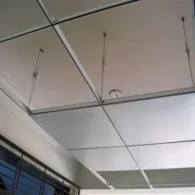- Afrikaans
- Albanian
- Amharic
- Arabic
- Armenian
- Azerbaijani
- Basque
- Belarusian
- Bengali
- Bosnian
- Bulgarian
- Catalan
- Cebuano
- Corsican
- Croatian
- Czech
- Danish
- Dutch
- English
- Esperanto
- Estonian
- French
- German
- Greek
- Hindi
- Indonesian
- irish
- Italian
- Japanese
- Korean
- Lao
- Malay
- Myanmar
- Norwegian
- Norwegian
- Polish
- Portuguese
- Romanian
- Russian
- Serbian
- Spanish
- Swedish
- Thai
- Turkish
- Ukrainian
- Uzbek
- Vietnamese
lis . 14, 2024 12:18 Back to list
gypsum board vs pvc ceiling
Gypsum Board vs. PVC Ceiling Which is the Better Choice for Your Space?
When it comes to interior decoration, the choice of materials can significantly influence both aesthetics and functionality. Two popular options for ceilings are gypsum board and PVC ceiling panels. Each has its own set of advantages and disadvantages, and the right choice often depends on the specific needs of the space being decorated. In this article, we will delve into the key features, benefits, and drawbacks of both gypsum board and PVC ceilings to help you make an informed decision.
Gypsum Board An Overview
Gypsum board, also known as drywall or plasterboard, is made from a gypsum core encased in thick paper liner. It is widely used in residential and commercial construction due to its fire-resistant properties and versatility. Gypsum board is typically installed in large sheets, making it a suitable option for creating smooth, seamless ceilings.
Benefits of Gypsum Board
1. Fire Resistance Gypsum board is non-combustible, offering a high level of fire resistance. This makes it a preferred choice for many building codes and safety regulations, particularly in commercial spaces.
2. Sound Insulation The density of gypsum board provides excellent sound insulation, which is beneficial in multi-family dwellings or offices where noise reduction is crucial.
3. Aesthetic Flexibility Gypsum ceilings can be painted, textured, or both, allowing for versatile design options. They can easily complement various interior styles, from modern to traditional.
4. Durability When properly installed, gypsum board can last for decades. It's resistant to warping and will not sag under normal conditions.
Drawbacks of Gypsum Board
1. Installation Complexity Installing gypsum board requires some skill and can be labor-intensive. The sheets must be cut, measured, and secured, and the seams require taping and finishing for a smooth look.
2. Susceptibility to Moisture Gypsum board can be damaged by water and moisture, which may cause it to crumble. Therefore, it is not ideal for areas with high humidity unless moisture-resistant variants are used.
3. Weight Gypsum board is relatively heavy, which may increase the structural load on ceilings and necessitate additional support in certain installations.
gypsum board vs pvc ceiling

PVC Ceiling An Overview
PVC ceiling panels are made from polyvinyl chloride, a lightweight, plastic material that is increasingly gaining popularity in both residential and commercial designs. These panels are often designed to mimic the look of traditional ceiling materials while offering unique advantages of their own.
Benefits of PVC Ceilings
1. Water Resistance One of the most notable advantages of PVC ceilings is their resistance to moisture. This makes them an excellent choice for bathrooms, kitchens, and other high-humidity areas.
2. Lightweight and Easy to Install PVC panels are much lighter than gypsum board, making installation quicker and easier. They can often be installed directly over existing ceilings, reducing labor costs and time.
3. Low Maintenance PVC ceilings are easy to clean and do not require painting. They are available in various colors and patterns, thus retaining their aesthetic appeal without much effort.
4. Cost-Effective Generally, PVC ceilings are more affordable than gypsum board, both in terms of material costs and installation expenses.
Drawbacks of PVC Ceilings
1. Environmental Concerns Although PVC is durable, it is a plastic product, which raises concerns about environmental sustainability and recyclability compared to gypsum board, which is made from natural materials.
2. Limited Aesthetic Options While PVC ceilings come in various designs, they may not achieve the same level of sophistication or texture that can be accomplished with finished gypsum board.
3. Heat Sensitivity PVC can warp or deform under extreme heat, making it less suitable for areas exposed to high temperatures.
Conclusion
Choosing between gypsum board and PVC ceilings ultimately hinges on the specific requirements of your space. If you prioritize fire resistance, sound insulation, and a traditional look, gypsum board may be your best bet. Conversely, if water resistance, lightweight features, and low maintenance are your primary concerns, PVC ceilings could be the ideal choice. Consider factors such as the location, usage, and aesthetic preferences before making a decision that best suits your needs.
-
Transform Interiors with PVC Gypsum Ceiling: A Stylish, Durable, and Moisture-Resistant SolutionNewsMay.19,2025
-
The Smart Interior Upgrade: Discover the Durability and Versatility of Gypsum Ceiling Access Panel SolutionsNewsMay.19,2025
-
The Smart Choice for Interior Design: Discover the Value of PVC Gypsum Ceiling SolutionsNewsMay.19,2025
-
Mineral Fiber Ceiling Tiles: The Smart Blend of Performance and AestheticsNewsMay.19,2025
-
Mineral Fiber Ceiling Tiles: The Superior Choice Over Gypsum for Sound and Fire SafetyNewsMay.19,2025
-
Mineral Fiber Ceiling Tiles: Eco-Friendly Strength and Style for Every CeilingNewsMay.19,2025







